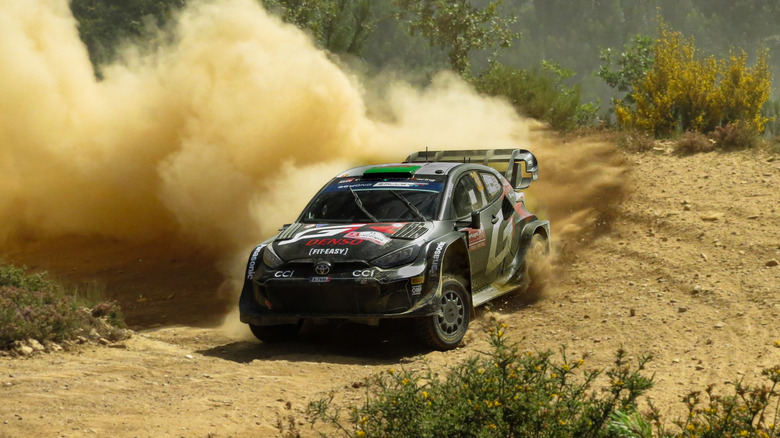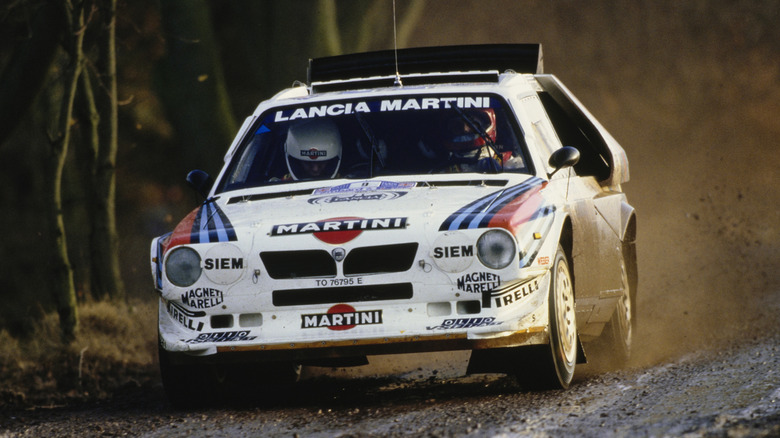How Fast Does A Rally Car Normally Go? A Look At Averages & Top Speeds
Car racing is usually about going as fast as possible on a set track — think of Formula 1, touring, and drag racing. But rally racing takes the race off the track and onto real world roads, with varying weather conditions, terrains, and challenges. The rally driver has never driven on the road before, but a navigator is in the car to give them all the upcoming details so they can drive as fast as possible in unknown territory. But just how fast do rally cars actually go during a race?
The speed a rally car goes throughout the rally stage is extremely varied. According to Nasa Rally Sport, the rally cars are often going around 50 to 70 miles per hour on the winding parts of the track, which can include snow and ice, gravel, and massive jumps. But there are some straight sections where rally cars can reach speeds of over 100 mph — and many of the fastest rally cars of all time have reached top speeds well over 100 thanks to their torque-focused engines and strong suspension systems.
There are also areas of the stage where rally cars are in public open roads, known as transit routes, and they must abide by the traffic laws there — they can even get extreme penalties for speeding. All of this combined makes rally car speeds vary quite a bit throughout the race.
What is the record for fastest rally car?
In rally racing, it's not really about the cars competing against one another like in other popular types of races — instead, each car gets a chance at taking on the stage to see which one gets the best time at the multi-day event. But rally cars don't get the best time by simply going fast. As explained earlier, rally cars are usually going at a pretty modest speed compared to Formula 1 and NASCAR racers.
In fact, the fastest NASCAR race was back in 1997, where the average speed was over 188 miles per hour. The fastest rally time is nowhere near that — Kris Meeke holds that record with one of the fastest rally cars ever built after finishing the 2016 Rally Finland with an average speed of 78.7 mph. That's because rally racing is more about acceleration, handling, and control rather than horsepower and top speeds. The most legendary rally cars are known for their reliability, durability, and versatility in all terrain and conditions. While there are rally cars that can reach up to 140-plus mph, having that much speed and power is actually dangerous for this type of driving. This was the case with the Lancia Delta S4, a championship car from the '80s that became too dangerous on rally stages due to its 550 horsepower, killing its driver and navigator.

